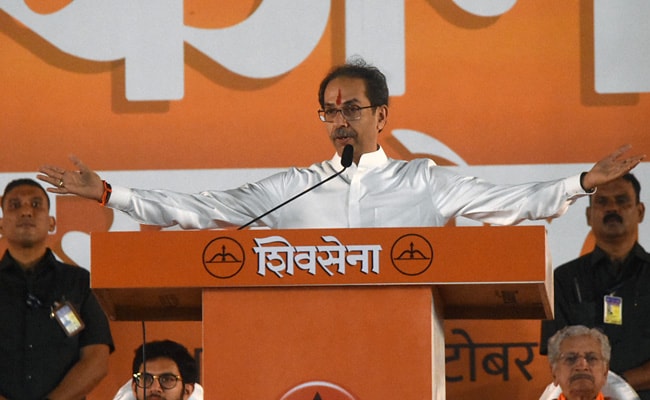India’s Election Commission, in a surprise decision on Friday, decided to hand over the Shiv Sena name and symbol to the Eknath Shinde faction, knowing full well that the case between the two factions is before the Supreme Court, pending a verdict on the Office of President and disqualification of 16 rebel deputies. Amazingly, the Election Commission handed over the party name and symbol to the same faction that betrayed the leadership and opted to run in Surat, Guwahati and Goa before forming a government in Maharashtra with the BJP. If that’s not a mockery of democracy, then what is?
It is irrefutable proof that there is no independent agency that works to uphold democratic principles and constitutional morality. The centralization of power is so complete that first the Directorate of Law Enforcement, CBI and Income Tax were deployed to divide the Sena, then the Election Commission of India – now in memoirs as the wholly compromised institution of India – was brought to give this betrayal a stamp of approval. The Eknath Shinde camp, instead of stepping down and facing an election, as is the constitutional mandate for them, chose to steal power through deception and manipulation.
They may have stolen the mandate, but they can’t take away the legacy of party founder Balasaheb Thackeray.
With the exit of these rebels, the party has been purged of people who lack the courage to fight the growing authoritarianism of the BJP, a party that does not hesitate to finish off its longtime allies for its gains.
The consequences of the Sena split raise two very relevant questions for India: the independence of executive institutions and the order of precedence between the pillars of democracy.
The decision of the Election Commission, or India’s fully compromised institution, is disappointing but to be expected, given the state of India’s institutions under the BJP. A simple reading of the ‘Final Order’ under the Election Symbols (Reservation and Allocation) Order 1968 reflects how the commission first came to a conclusion and then formulated the reasoning behind it. surrounds to justify the order.
To quote, “the Commission was once again forced to rely on the ‘majority test’”. If the Commission was indeed to refer to the test, it also had to go into the aspect of how the majority was assured. The “majority” is nothing but an example of bargaining, seduction and coercion. If the supreme body responsible for regulating elections in the country does not qualitatively analyze these issues, politics will be reduced to a numbers game.
What is surprising is the decision that a “test of the party constitution” shows a lack of internal party democracy. Yet there is ample evidence in the public domain that Uddhav Thackeray’s election followed the rules of the Election Commission and received the stamp of approval. of all party representatives in 2018.
As for the party’s internal democracy, Uddhav Balasaheb Thackeray enjoys the majority support of rank-and-file Shiv Sena workers. Evidence of this was in more than 20 lakh affidavits of primary members and 2.83 lakh affidavits of office bearers submitted to the Election Commission, compared to 12 lakh primary members and 711 office bearers of the Shinde faction. It is surprising to see the electorate ignore the support of the cadre and rely on “legislative support”.
While we talk about internal party democracy and transparency, will the ECI explain to the country how the BJP chooses its party chairman? Indeed, to quote Arun Jaitley, “post-retirement investments affect pre-retirement judgments”. Although this has been said in the context of the judicial system, it does not seem out of place to apply this statement to the CIS.
This order is a dangerous deviation from the previous one. For example, in 2017 when the AIADMK split into VK Sasikala and E Palaniswami, both factions took on new names and symbols. Similarly, the split Lok Janshakti party between Chirag Paswan and his uncle Pashupati Paras also demanded that both factions use new, modified party names and symbols.
These examples allow the ECI to understand that beyond the numerical majority, it is important to consider the heritage of a party. The ECI ordinance on the Shiv Sena could undermine India’s democratic values and constitutionalism, reducing it to a game of overthrowing governments.
There is an urgent need to review what necessitated anti-defection laws. The ECI should have kept this fundamental jurisprudential aspect in mind when deciding the case, unless guided by external considerations. It is now up to the Supreme Court, which is also constantly under attack, to ensure that democracy is protected and to prove that justice will continue to be the beacon in these turbulent times.
(Priyanka Chaturvedi is a member of Rajya Sabha and Deputy Chief Shiv Sena.)
Disclaimer: These are the personal opinions of the author.
Featured Video of the Day
Watch: Telangana chief rips KCR apart, sparks political row
Fr
Don’t miss interesting posts on Famousbio










